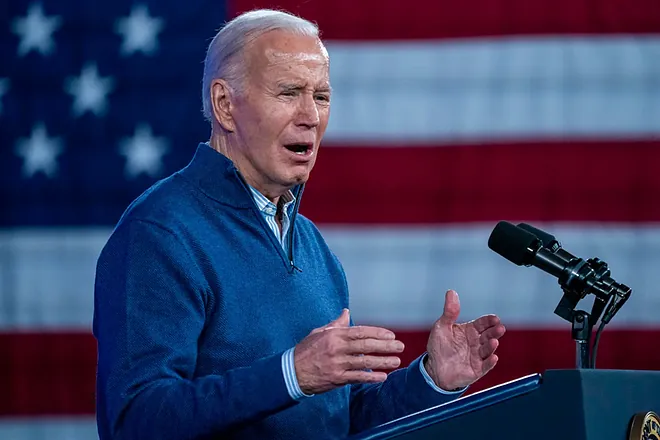In a recent campaign speech in Pittsburgh, President Joe Biden recounted the wartime experiences of his uncle, 2nd Lt Ambrose J Finnegan Jr, suggesting that he may have been eaten by cannibals in Papua New Guinea during World War II. Biden’s remarks have stirred both confusion and criticism in the country, with analysts and locals questioning the validity and sensitivity of his claims.
According to Biden, his uncle, affectionately known as “Uncle Bosie,” flew reconnaissance flights in single-engine planes during the war and was shot down in New Guinea, where cannibals were reportedly prevalent. However, official war records state that Finnegan was killed in a plane crash due to engine failure, with no mention of cannibalism or enemy fire.
The comments made by Biden have been met with skepticism and disapproval in Papua New Guinea, a country with a rich and diverse cultural heritage. Michael Kabuni, a political science lecturer at the University of Papua New Guinea, described Biden’s remarks as unsubstantiated and offensive, particularly in light of ongoing efforts to strengthen ties between the United States and Papua New Guinea.
Joe Biden doubles down on false claim his uncle was eaten by cannibals https://t.co/TZ7c6Ulru4 pic.twitter.com/mAMz5IWhcK
— National Post (@nationalpost) April 19, 2024
Locals in Papua New Guinea, part of the Melanesian group of people, take pride in their heritage and find such categorizations deeply offensive. While acknowledging the historical existence of cannibalism in the region, they emphasize the importance of contextualizing and respecting their culture.
Biden’s anecdote has underscored the need for greater cultural sensitivity and awareness, especially in diplomatic relations and public discourse. As the United States seeks to bolster its presence in the Pacific region and counter Chinese influence, understanding and respecting the cultural nuances of partner countries like Papua New Guinea is essential.
In summary, Biden’s remarks about his uncle’s wartime experience have ignited controversy and raised questions about cultural sensitivity and historical accuracy. As the debate continues, it serves as a reminder of the importance of respectful dialogue and understanding in international relations.

